Sustainability
with notes from our Sustainability leaders
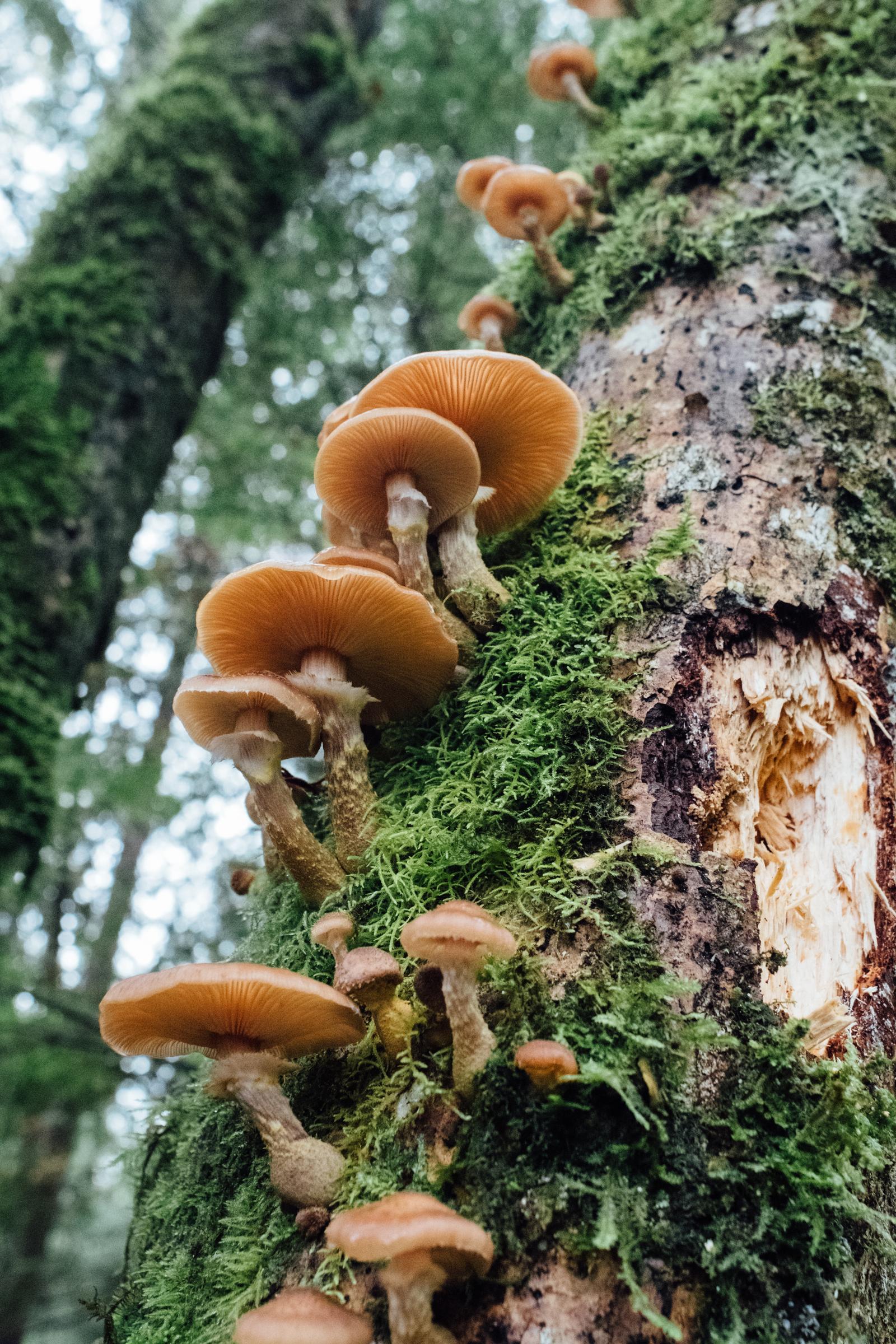
Sustainability
with notes from our Sustainability leaders


TERM 2 Macedon Ranges Sustainability in ResourceSmart Schools Network meeting (with students).
Newham Primary School, have cordially invited ResourceSmart Schools in the Macedon Ranges to visit them. Newham Primary is currently the Ranges only 5-star school! Schools will be bringing their student leaders to present on the sustainability activities and projects of their school. This interactive morning will enable all to learn about school sustainability initiatives across the shire and come away inspired and energised.
Newham students will be providing a tour of Newham PS and information about the great work they've done.
This meeting will be an invaluable opportunity to network, for schools not yet started on their sustainability journey, through to those leading the way.
ResourceSmart Schools is an award-winning Victorian Government program that assists schools to embed sustainability in everything they do.
The ResourceSmart Schools program provides practical support to schools to reduce resource use, make cost savings, integrate sustainability into the curriculum and share learnings beyond the school gate.
The ResourceSmart Schools program has 5 modules [Core, Water, Waste, Energy and Biodiversity] . . . Schools must accomplish a set number of actions to complete a module to receive a certificate valid for four years.
From ResourceSmart Schools website
Newham Primary School is current with all five modules but we are required to submit documents and data, such as our consumption of energy and paper, and the amount of waste we produce, throughout the year. We are supported by our ResourceSmart region's Team Leader for Regional Education-West, Debbie Rovere.
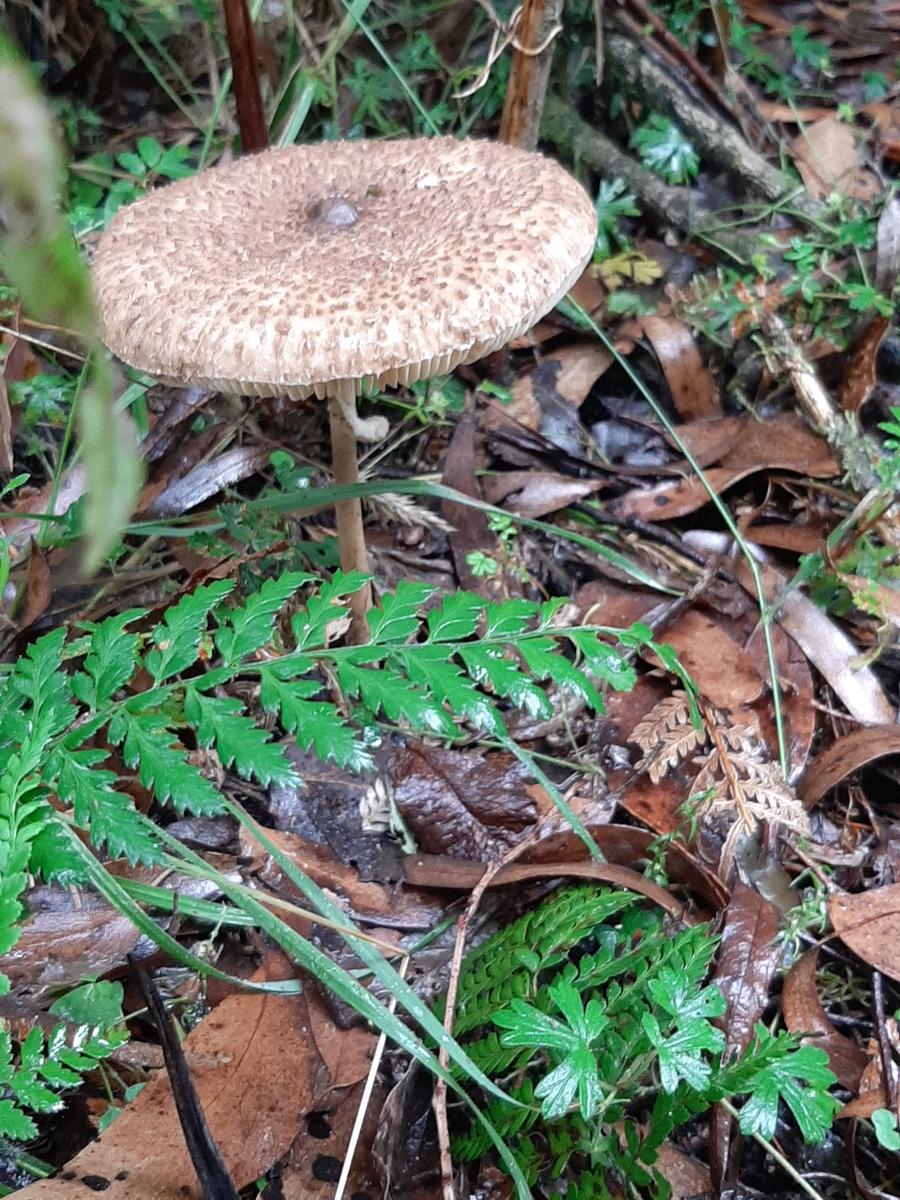

As you may know, the students have been been learning about fungi throughout term 1. After listening to a podcast by fungi expert Dr Alison Pouliot, I realised how much of the information she spoke about, has been covered by our students. I have heard students using classification terminology such as Agarics, Puffballs and Polypores. They can explain that the mycelium underground produces the fruiting body, and how fungi reproduce by spore dispersal, with spores that only contain half the genetic material required to produce mycelium. Amazing! Here some examples of student work.
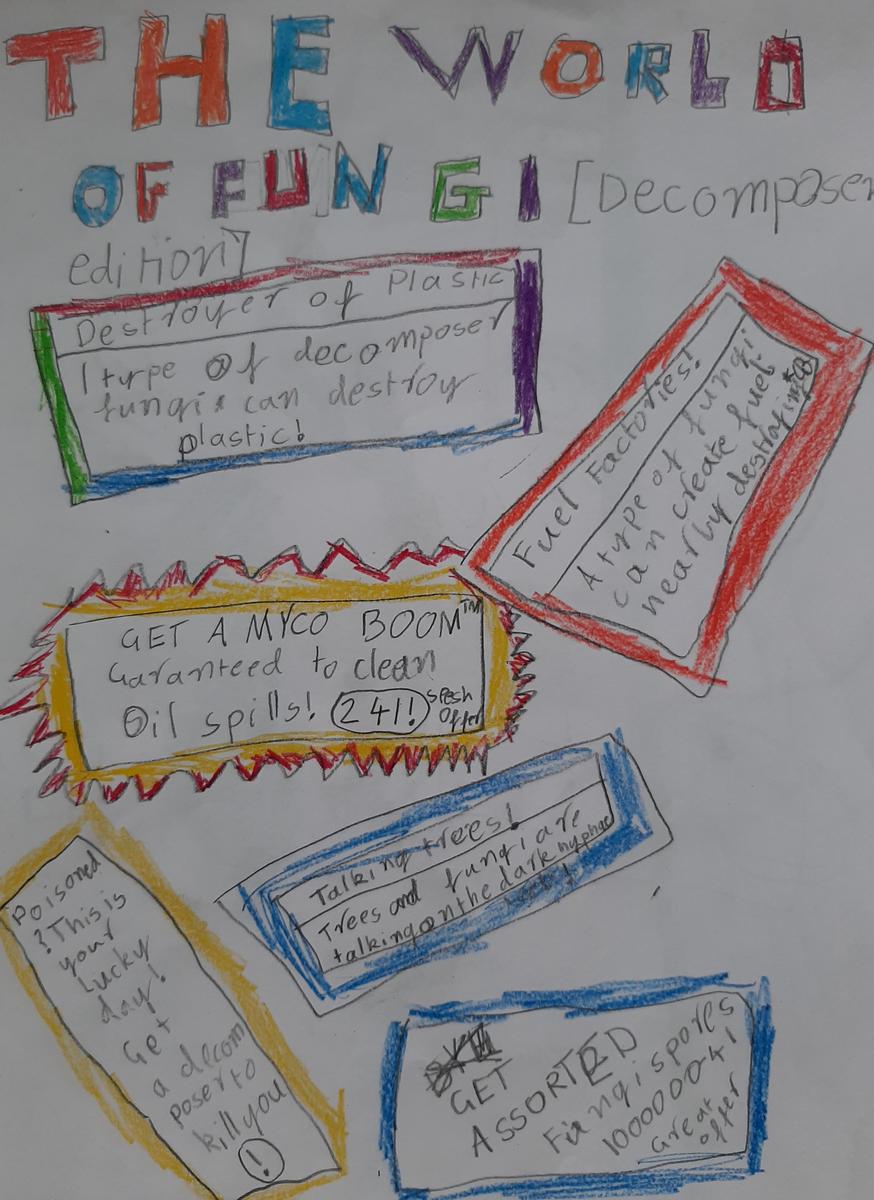
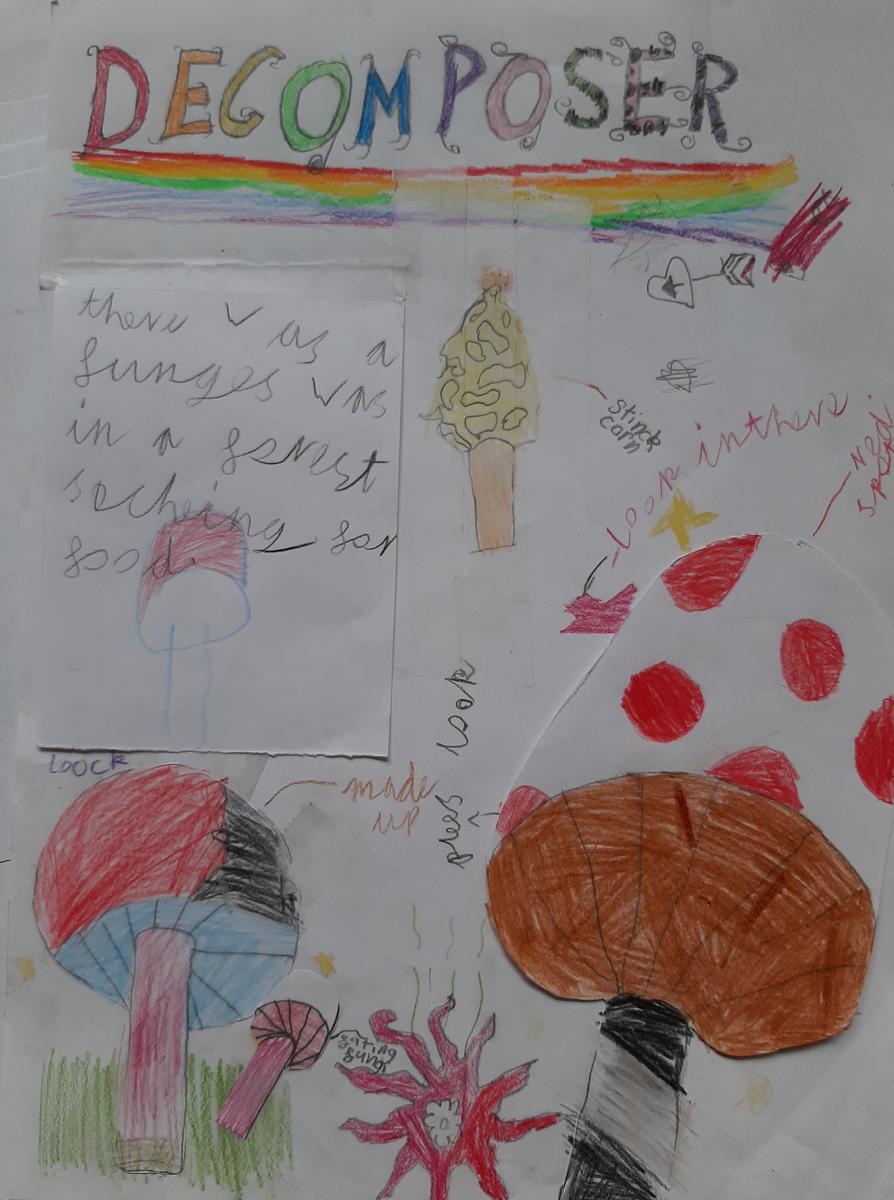
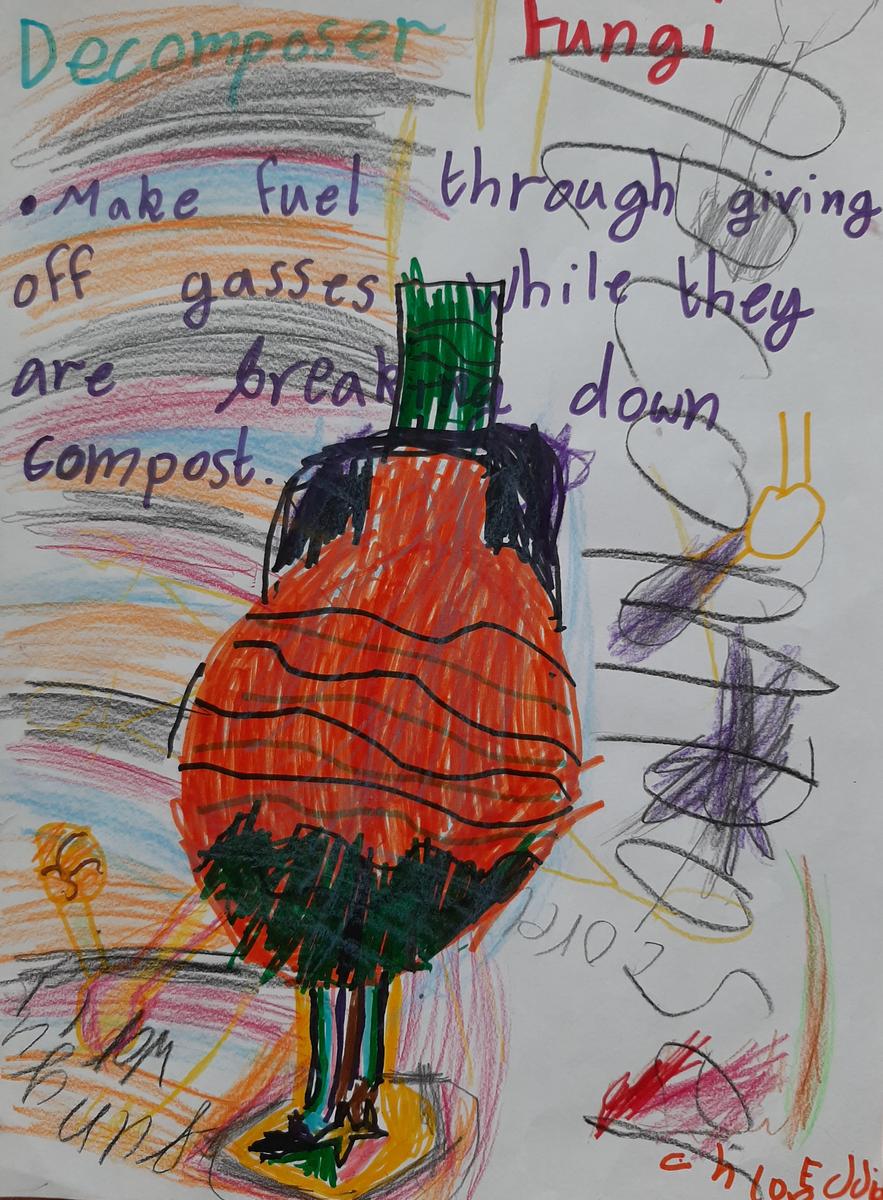



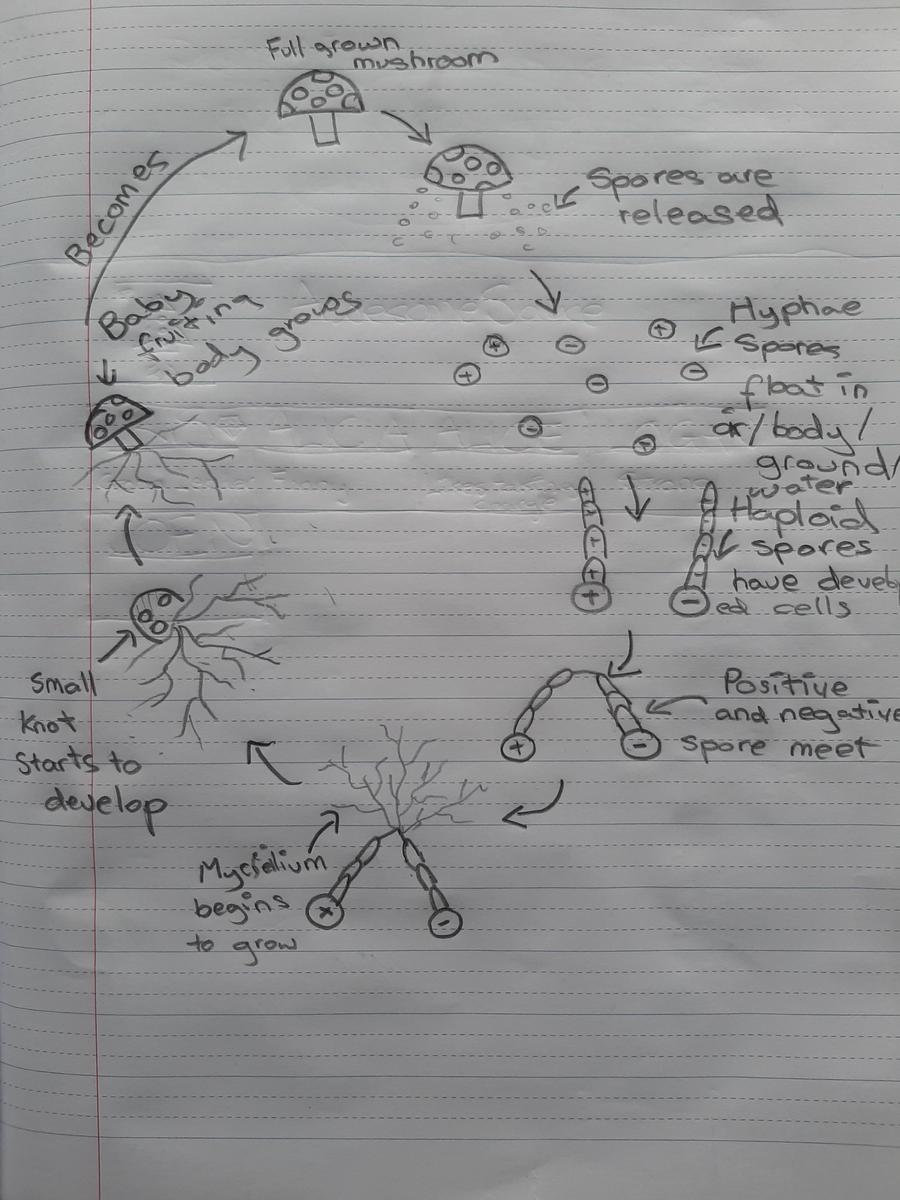
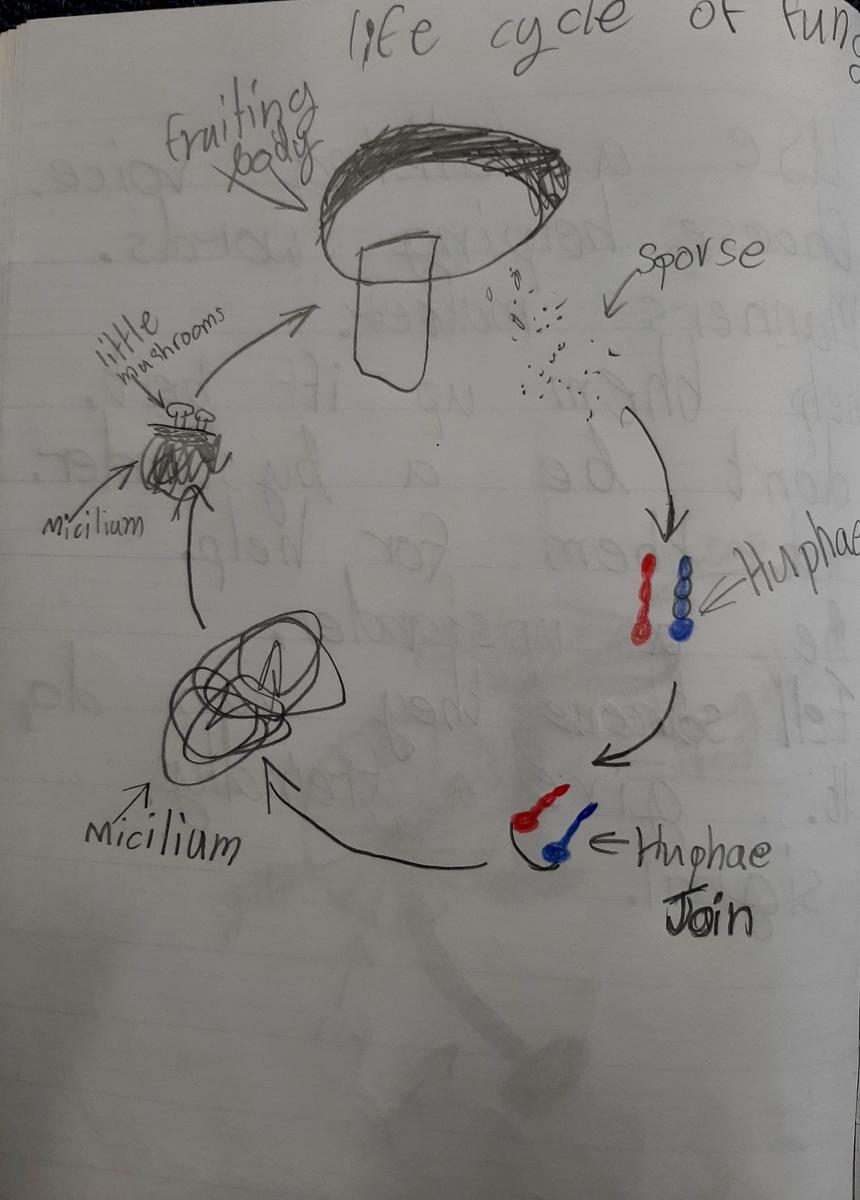
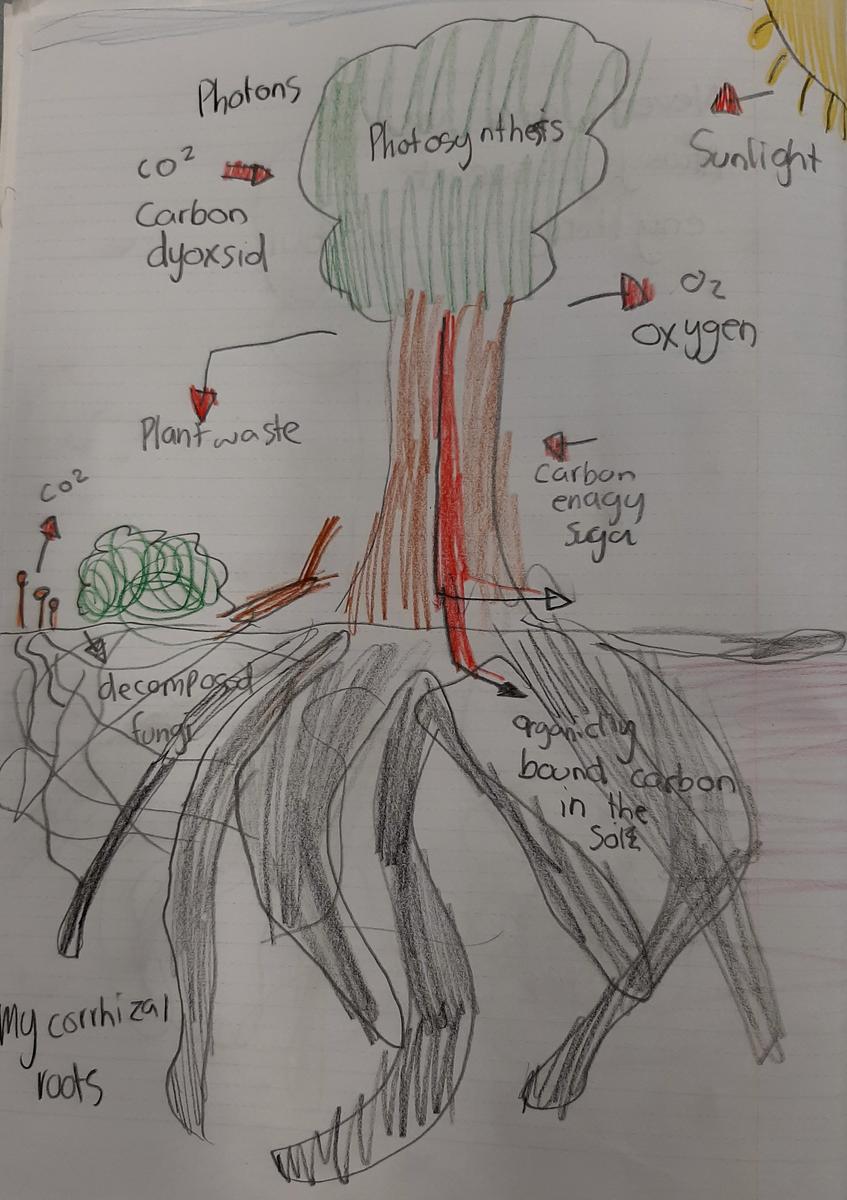



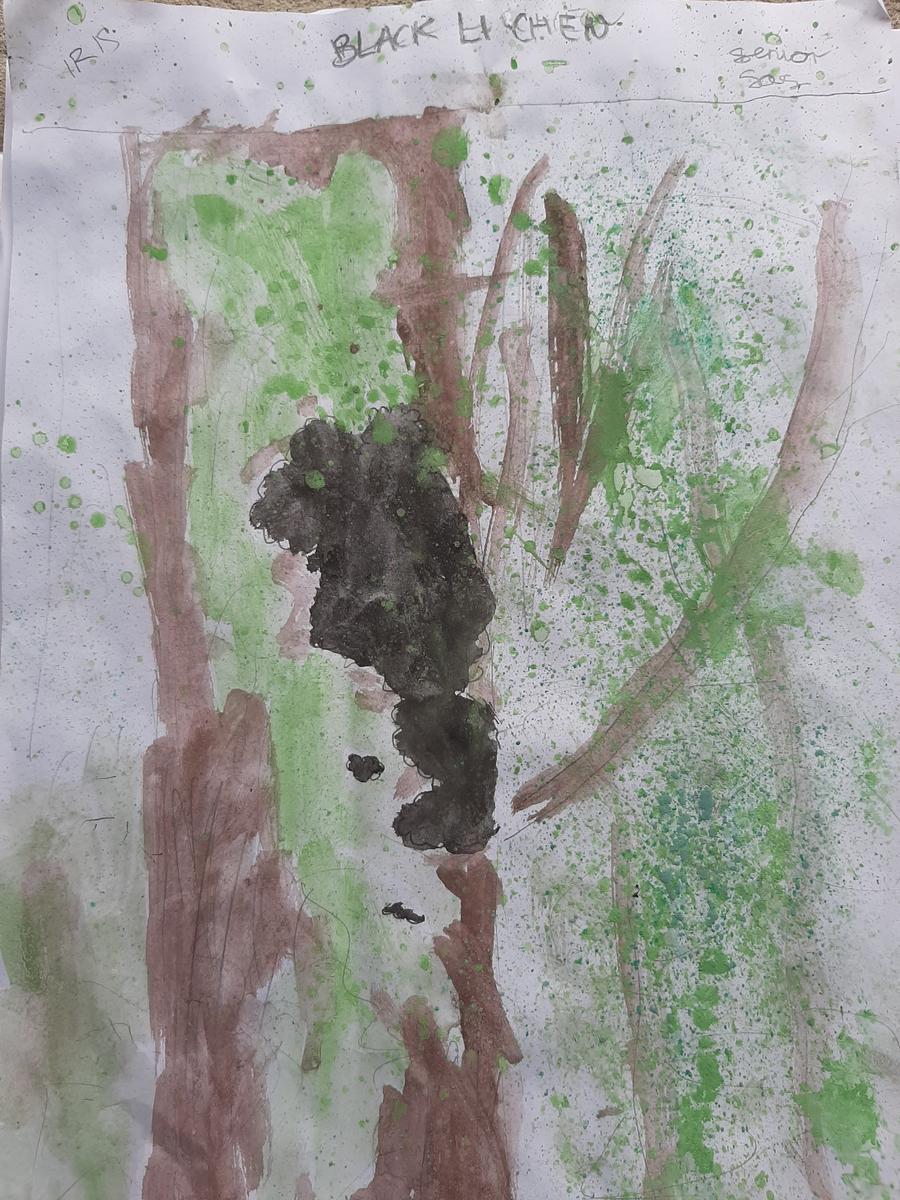
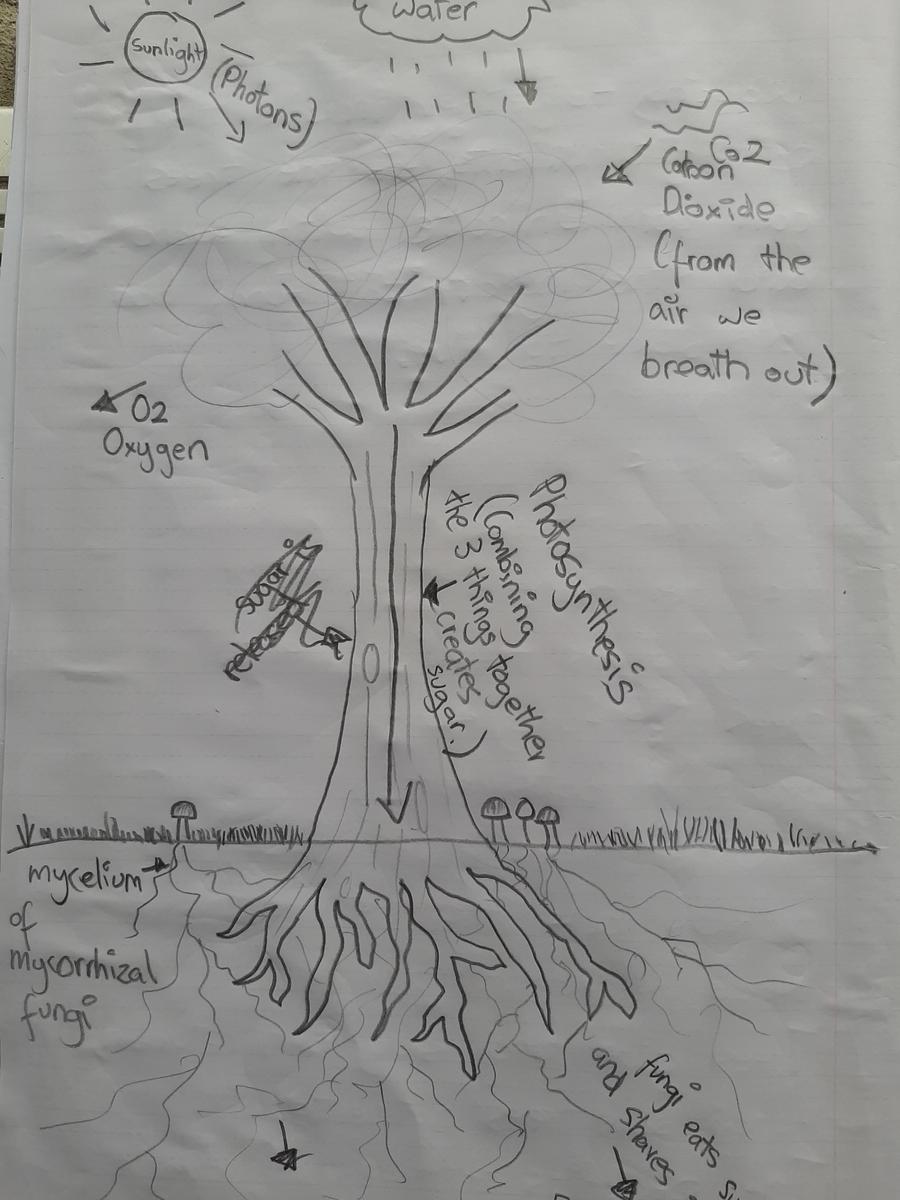
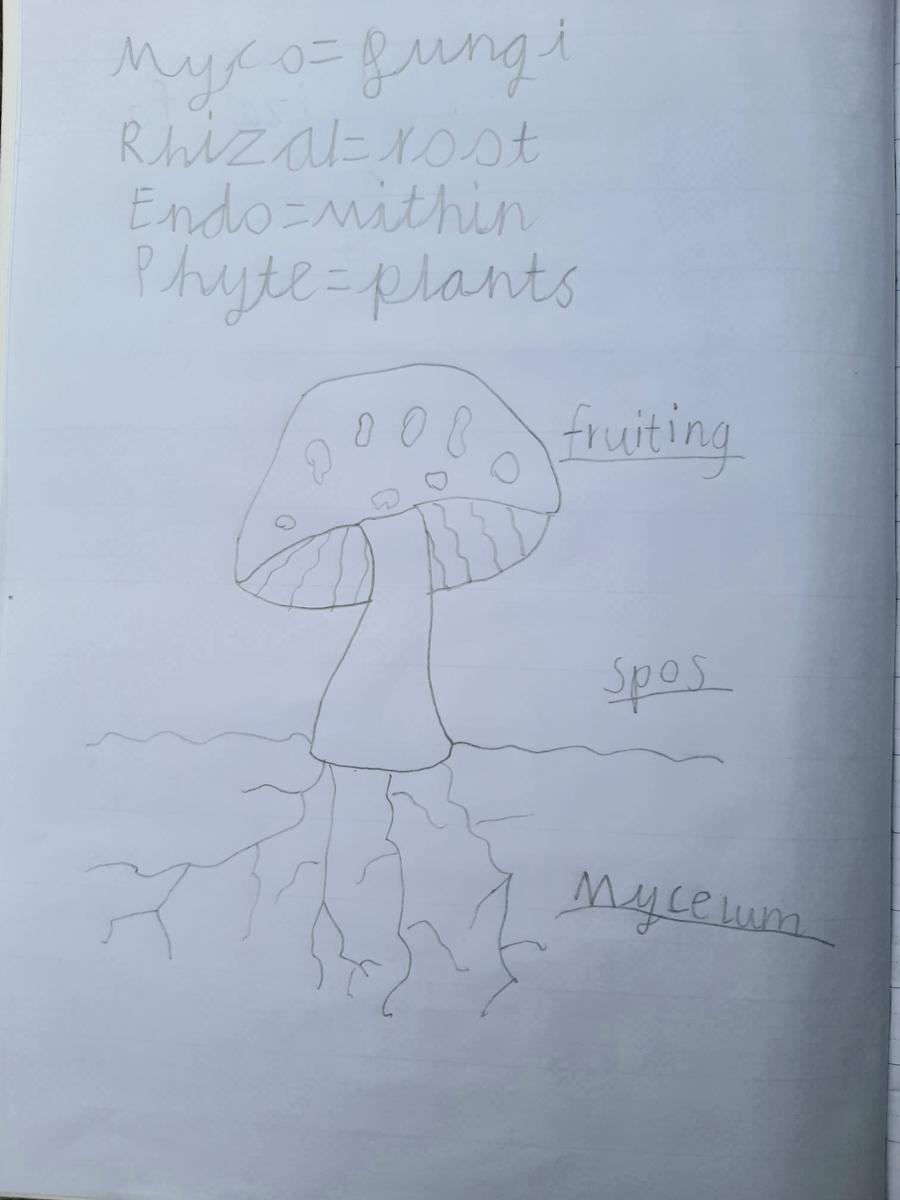



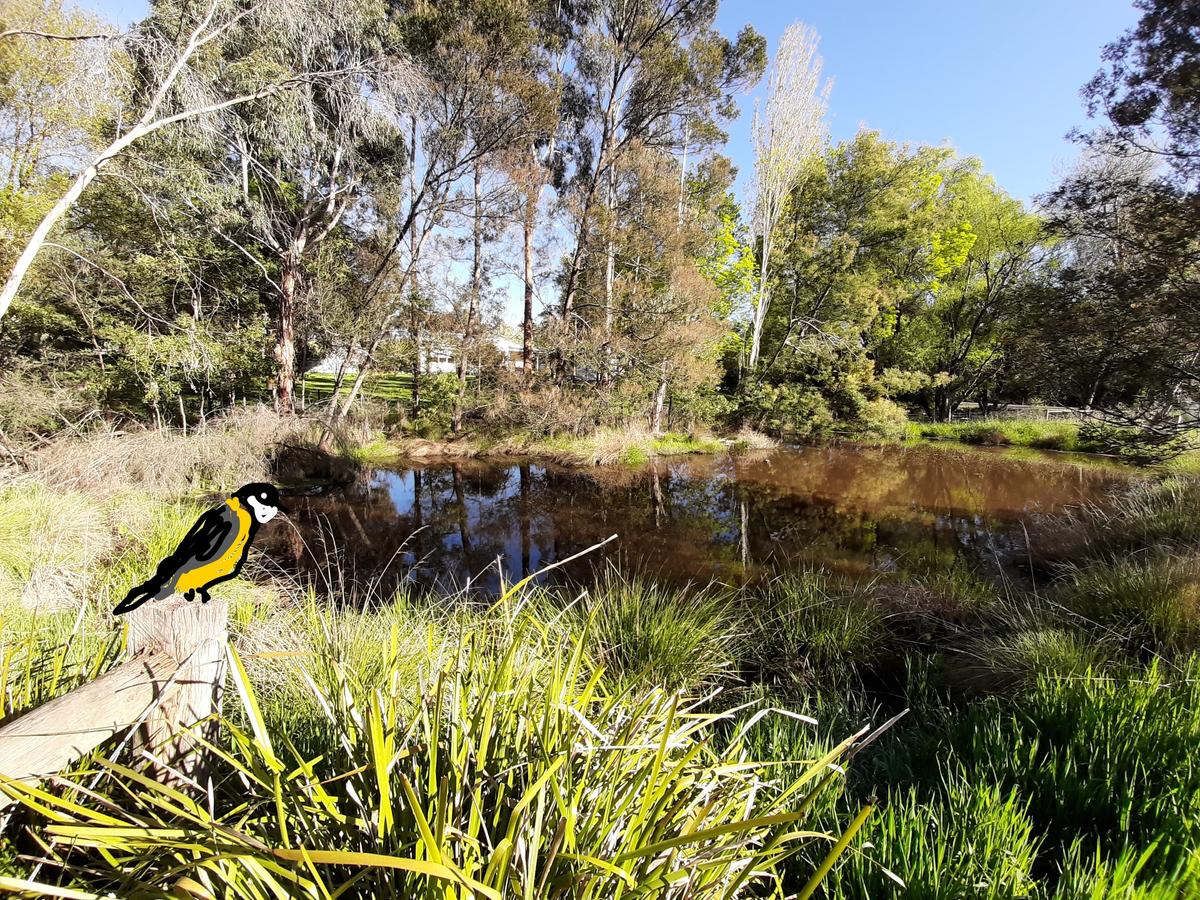
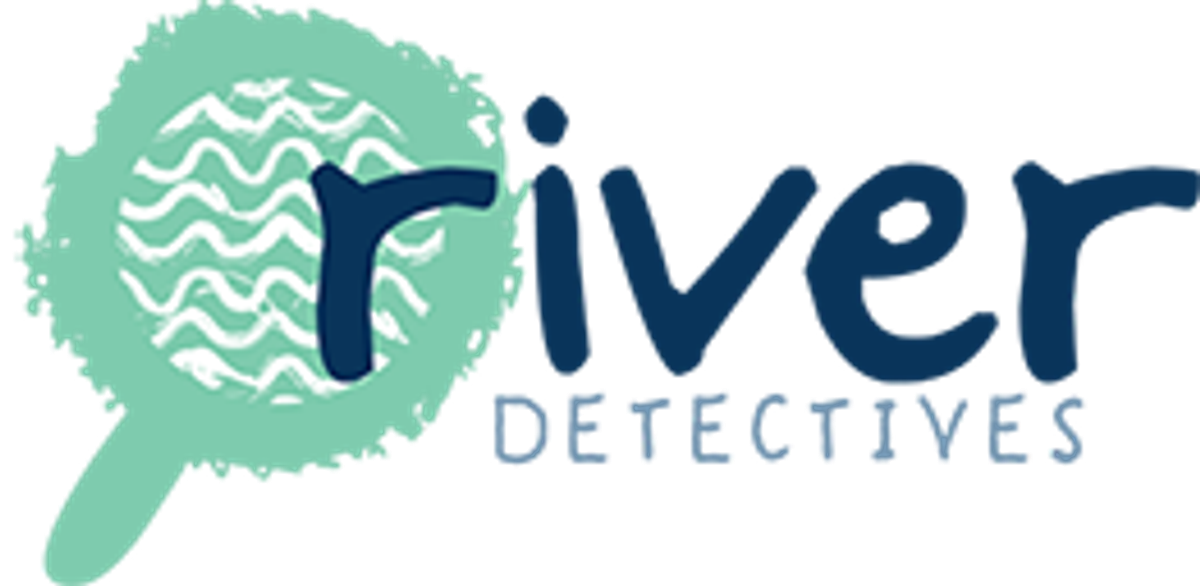


Newham PS has been involved in the citizen science Waterwatch program for many, many years, where students sampled and monitored the health of the waterway adjacent to the school. This came to a halt during covid and for various reasons, never got going again. We recently applied for a similar Victorian program run by Catchment Management Authorities, called River Detectives, and were lucky enough to gain one of the limited places available.
After the term break, the school will receive a monitoring kit and the sustainability leaders will be trained in how to use the kit under the guidance of Libby Fullard. The sustainability leaders will then lead different classes who will sample water from our waterway, a tributary to Deep Creek. We are also hoping to sample water from a different waterway (to be determined) and compare the data. Watch out for more stories about our adventures with River Detectives next term.
As part of our Earthwatch Distinctive Areas and Landscapes (DAL) 2023 action project , in partnership with Newham Landcare, the students will be going on an excursion to the Andersons Road site (NE corner of Andersons and Boundary Roads) on 11 May.
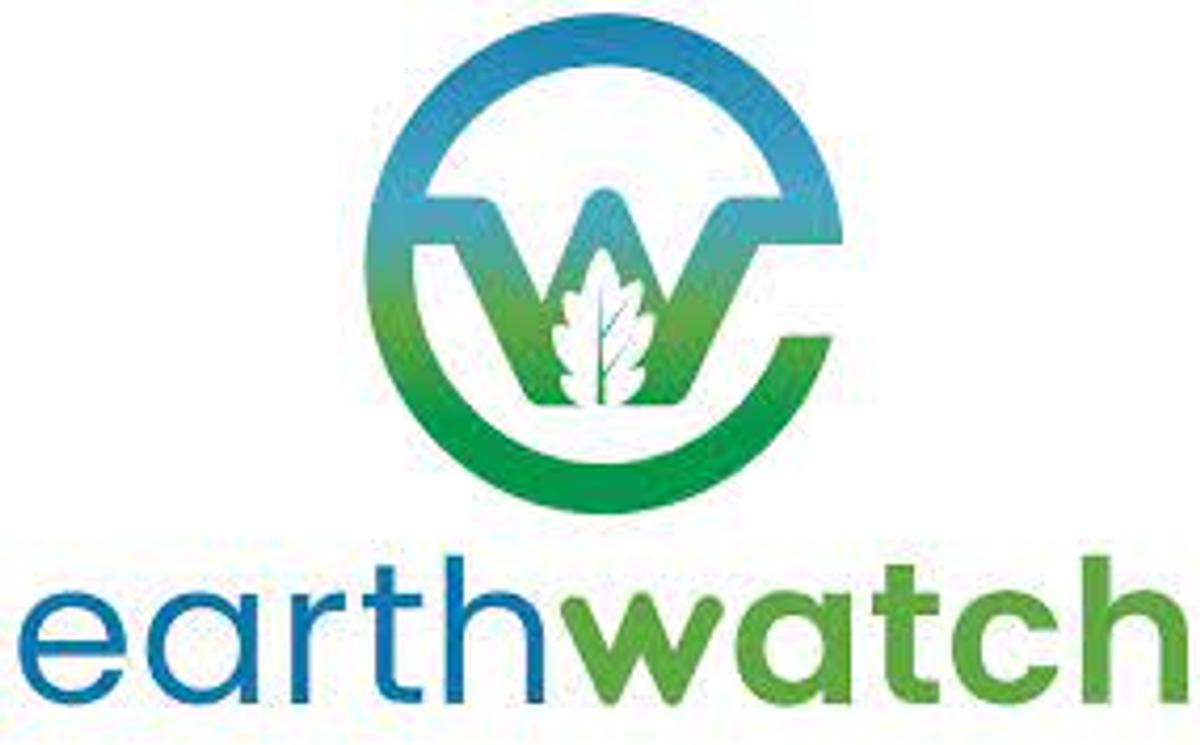
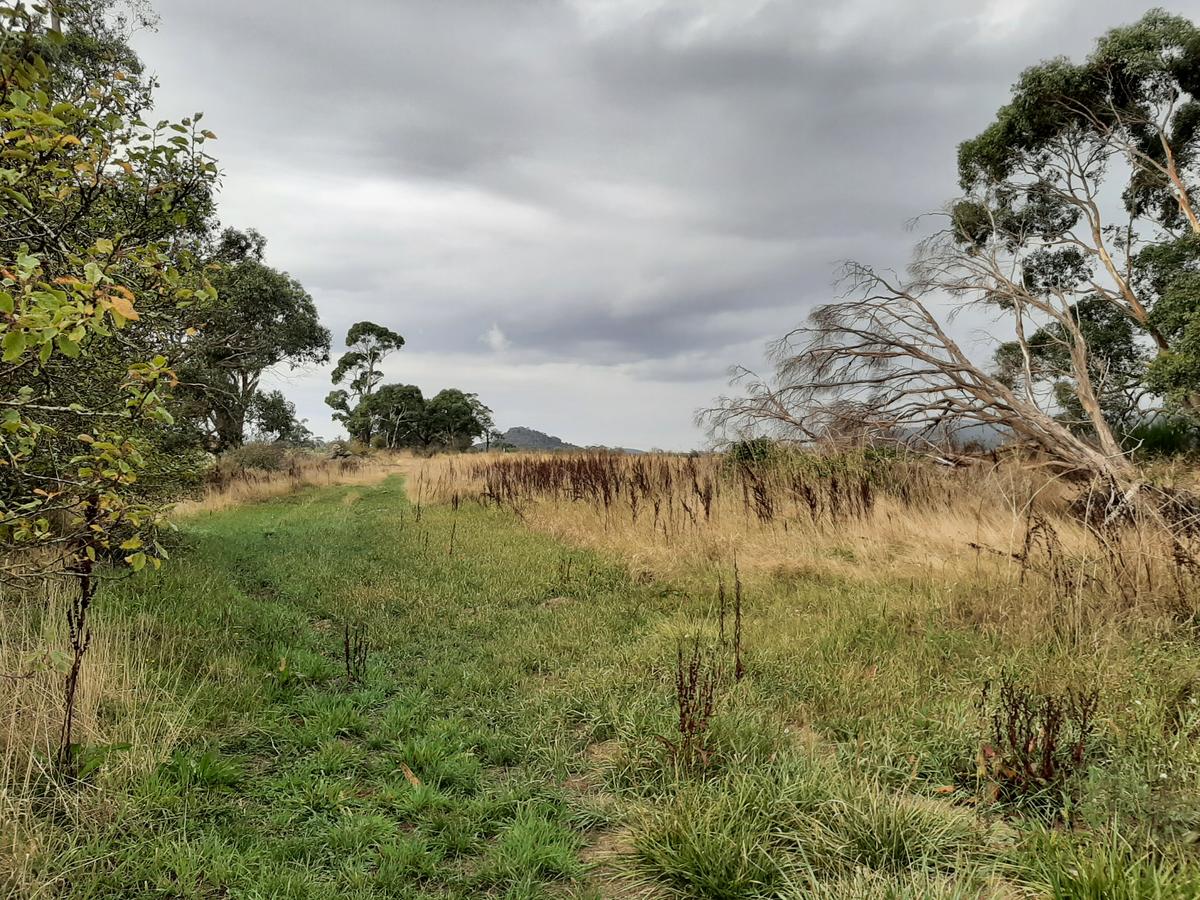
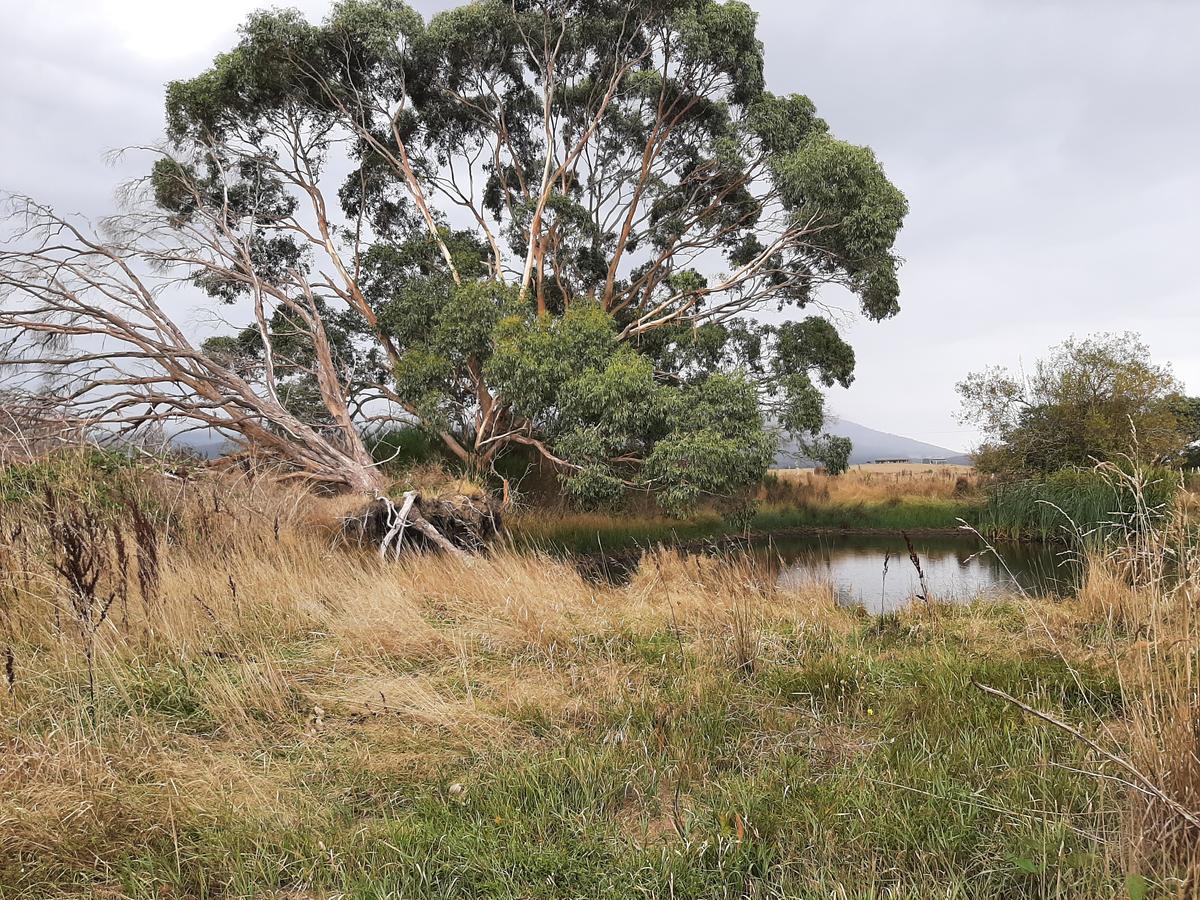



We are excited to have Tanya Loos, the Biodiversity Project Officer from MRSC talk to the students about the animals that might possibly be found at the site and in the surrounding area, as well as the type of plants that will provide habitat. You can read more about Tanya below.
Tanya works at Macedon Ranges Shire Council as their Biodiversity Projects Officer. Her role at Council is to deliver various projects that progress the Macedon Ranges Shire Council Biodiversity Strategy, including the biodiversity monitoring program. Tanya lives in the Wombat Forest, on a small bush block in Porcupine Ridge with her husband, a small poodle cross and an aviary filled with rescue parrots. A mad keen field naturalist and nature writer, Tanya loves sharing her nature knowledge with people of all ages.
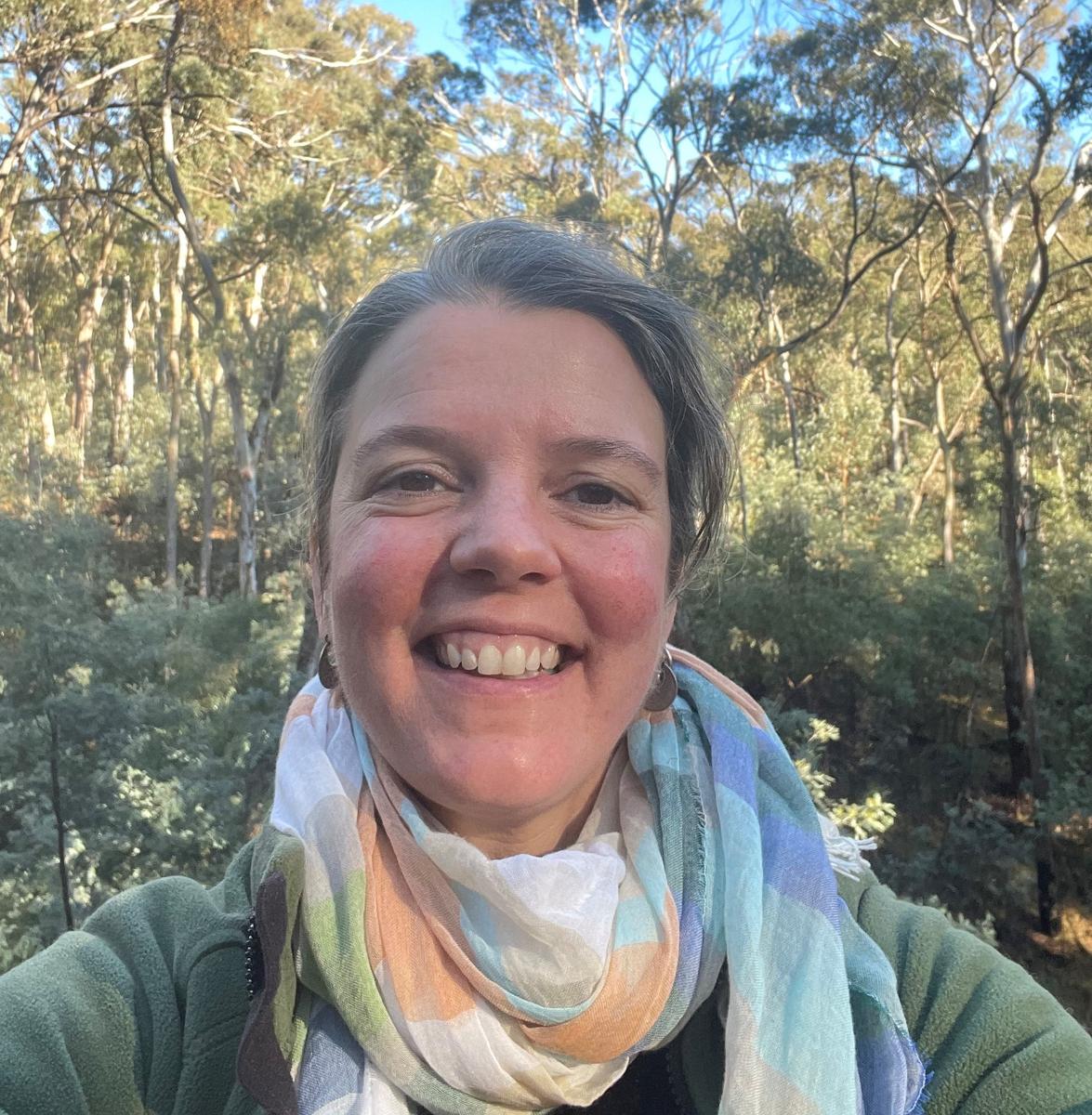

If you would like to volunteer for our excursion to the Romsey Ecotherapy Park and Andersons Road, with the Tanya Loos talk, please let the school office know.
We will also be looking for volunteers for our whole school planting day with Newham Landcare at the Andersons Road site on 16 May.
Save the dates; 11 May and 18 May. As you may have observed, the willows were removed from the waterway adjacent to the school as they are considered weeds and impact the health of the waterway.
Willow colonisation causes environmental impacts on stream and wetland health. The trees have dense root systems that maximize water uptake and form thickets that allow trees to grow across stream beds, as the roots trap more and more sediment. Water movement is slowed and may be diverted around these dense thickets, causing stream bank erosion as water is diverted outside the natural stream channel. Willows are also hybridising, furthering their spread and colonising many large and small river reaches.
From Rivers of Carbon website
The school is being provided with 300 indigenous plant species, including canopy eucalypts and blackwood acacias. All hands on deck for planting would be appreciated. Please let the school office know if you can volunteer.